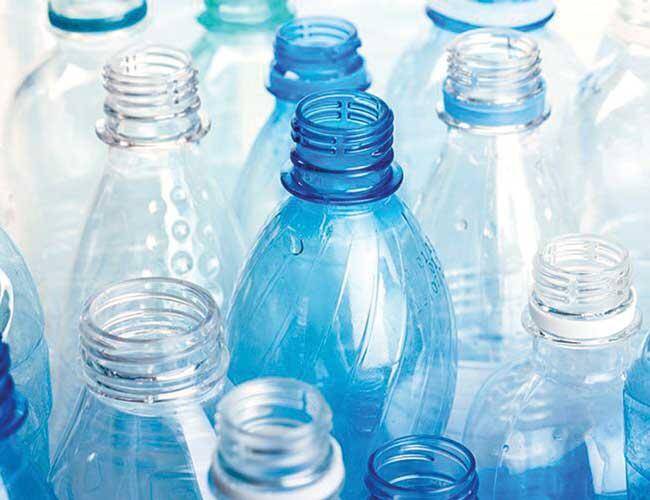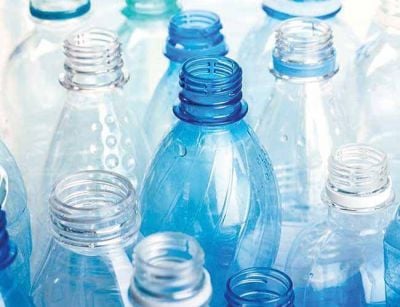
Factories that bottle water have not been able to secure enough diesel to power their generators, meaning their output has decreased significantly. (Credit: AFP)
BEIRUT – Supermarkets across Lebanon have been hit by a shortage of bottled water amid production issues resulting from crippling countrywide fuel shortages.
“We have slashed our production in recent weeks by 50 percent … our factory used to operate six days a week and now it is operating only three days a week because there is no fuel,” Ghassan Geagea, sales manager at Lebanese bottled water producer Tannourine Mineral Water, told L'Orient Today.
“The diesel shortage is unbelievable. We’ve been in this situation for 20 days and it’s going to get worse if we don’t get diesel,” Geagea said.
Fuel-reliant factories that bottle water have not been able to secure enough diesel to power their generators, which in the absence of state electricity are essential to pump water and manufacture plastic bottles from preform — an intermediate plastic product that is subsequently shaped into a plastic container. Even once the water is bottled and packaged, gasoline shortages mean there is not enough fuel to drive trucks to distribute the bottled water to supermarkets, businesses and households.
Vice president of the Association of Lebanese Industrialists, George Nasrawi, told L’Orient Today that factories across the country have been struggling to maintain operations due to fuel shortages. Nasrawi explained that the crisis has also slowed operations at factories that turn imported plastic into preform, which is then used by water companies to manufacture plastic bottles.
“We used to produce 300,000 boxes of water per week … With reduced operating hours we are now producing 150,000 boxes per week and we can’t produce more than this,” Tannourine’s Geagea said.
In Lebanon, residents rely exclusively on bottled water to drink and often to cook because tap water in the country is undrinkable.
According to USAID, water quality in Lebanon is worsening as a result of surface and underground water pollution caused by decades of urbanization, lack of proper waste management systems, and irregular dumping of waste of all kinds in rivers, sea outfalls and valleys.
Typically, residents rely on water companies like Tannourine Mineral Water to deliver gallons of water on a weekly basis, but shortages have forced bottled water companies and supermarkets to ration how much bottled water is sold to individuals.
Last week, several grocery stores and supermarkets across the country limited the amount of water sold per customer. Images circulating social media showed depleted water bottle stocks on store shelves. On Friday night there were no gallon jugs of water at Matahen Supermarket in Corniche al-Mazraa, while another supermarket in the same neighborhood had some bottled water in stock but posted a sign limiting customers to purchases of two cases each.
For now, the diesel shortages are mainly impacting the manufacturing of large and small bottles of water, Geagea said, while the company is prioritizing the production and distribution of large 19-liter water containers typically delivered to households on a weekly basis.
But for now, no new households or businesses can sign up for Tannourine’s water delivery. “We are not taking on any new customers until this issue is resolved,” Geagea said.
With a looming shortage of safe drinking water, residents may resort to regularly using tap water for drinking and cooking — but even this supply is in danger of becoming scarce.
Water can only emerge from household faucets as long as there is electricity available to pump it from reservoirs through water treatment plants and onward to its domestic and commercial destinations.
The Beirut and Mount Lebanon Water Establishment announced in a statement on Tuesday that it would have to implement a “severe rationing program in most of the areas within its jurisdiction due to the failure to receive diesel.” This means that access to tap water will be limited depending on the availability of fuel.
The water establishment’s announcement follows a second warning on water shortages in Lebanon from the United Nations Children’s Fund (UNICEF) in less than a month. In a statement issued on Saturday, UNICEF raised the alarm that 4 million people in Lebanon are in danger of losing critical access to or experiencing shortages of water “in the coming days.”
“UNICEF is calling for the urgent restoration of the power supply — the only solution to keep water services running,” the statement added.
